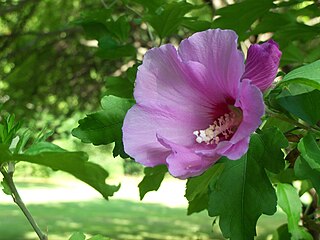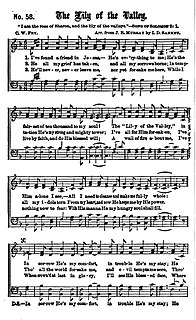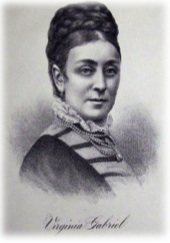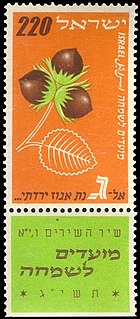Related Research Articles

The Song of Songs, also called the Song of Solomon, is one of the megillot (scrolls) found in the last section of the Tanakh, known as the Ketuvim. It is unique within the Hebrew Bible: it shows no interest in Law or Covenant or the God of Israel, nor does it teach or explore wisdom like Proverbs or Ecclesiastes ; instead, it celebrates sexual love, giving "the voices of two lovers, praising each other, yearning for each other, proffering invitations to enjoy". The two are in harmony, each desiring the other and rejoicing in sexual intimacy. The women of Jerusalem form a chorus to the lovers, functioning as an audience whose participation in the lovers' erotic encounters facilitates the participation of the reader. Scholars differ on when it was written, with estimates ranging from the 10th to 2nd century BCE, with an analysis of the language used suggesting the 3rd century.

William Billings is regarded as the first American choral composer, and leading member of the First New England School.
"Chester" is a patriotic anthem composed by William Billings and sung during the American Revolutionary War. Billings wrote the first version of the song for his 1770 songbook The New England Psalm Singer, and made improvements for the version in his The Singing Master's Assistant (1778). It is the latter version that is best known today.

The sentence "Rose is a rose is a rose is a rose" was written by Gertrude Stein as part of the 1913 poem "Sacred Emily", which appeared in the 1922 book Geography and Plays. In that poem, the first "Rose" is the name of a person. Stein later used variations on the sentence in other writings, and "A rose is a rose is a rose" is among her most famous quotations, often interpreted as meaning "things are what they are", a statement of the law of identity, "A is A". In Stein's view, the sentence expresses the fact that simply using the name of a thing already invokes the imagery and emotions associated with it, an idea also intensively discussed in the problem of universals debate where Peter Abelard and others used the rose as an example concept. As the quotation diffused through her own writing, and the culture at large, Stein once remarked, "Now listen! I'm no fool. I know that in daily life we don't go around saying 'is a ... is a ... is a ...' Yes, I'm no fool; but I think that in that line the rose is red for the first time in English poetry for a hundred years.".

Rose of Sharon is a name that has been applied to several different species of flowering plants that are valued in different parts of the world. It is also a biblical expression, though the identity of the plant referred to is unclear and is disputed among biblical scholars. In neither case does it refer to actual roses, although one of the species it refers to in modern usage is a member of Rosaceae. The deciduous flowering shrub known as the rose of Sharon is a member of the mallow family which is distinct from the family Rosaceae. The name's colloquial application has been used as an example of the lack of precision of common names, which can potentially cause confusion. "Rose of Sharon" has become a frequently used catch phrase in poetry and lyrics.
"Africa" is an 18th-century hymn tune by American choral composer William Billings, who worked in New England.

Dichterliebe, "A Poet's Love", is the best-known song cycle by Robert Schumann. The texts for the 16 songs come from the Lyrisches Intermezzo by Heinrich Heine, written in 1822–23 and published as part of Heine's Das Buch der Lieder. After the song cycles of Franz Schubert, Schumann's are part of the core of the genre in musical literature.
"The Parting Glass" is a Scottish traditional song, often sung at the end of a gathering of friends. It has also long been sung in Ireland, enjoying considerable popularity to this day and strongly influencing the style in which it is often now sung. It was purportedly the most popular parting song sung in Scotland before Robert Burns wrote "Auld Lang Syne".
Flos Campi: suite for solo viola, small chorus and small orchestra is a composition by the English composer Ralph Vaughan Williams, completed in 1925. Its title is Latin for "flower of the field". It is neither a concerto nor a choral piece, although it prominently features the viola and a wordless choir. The piece is divided into six movements, played without pause, each headed by a verse from the Song of Solomon:
- Sicut Lilium inter spinas (Lento)
- Jam enim hiems transiit
- Quaesivi quem diligit anima mea
- En lectulum Salomonis
- Revertere, revertere Sulamitis!
- Pone me ut signaculum
Debby Kerner & Ernie Rettino are American musicians best known as the creators of the characters from the Psalty the Singing Songbook in the Kids' Praise! series of Christian children's musical albums. Together, they have also created Solomon the Supersonic Salamander, and Hi-Tops.
John Mundy was an English composer, virginalist and organist of the Renaissance period.

Samuel Howard Stept was an American songwriter who wrote for Broadway, Hollywood and the big bands. He became known simply as Sam Stept or Sam H. Stept – he rarely used his full middle name.
The Isaacs are a bluegrass Southern gospel music group consisting of mother Lily Isaacs, daughters Becky and Sonya Isaacs and son Ben Isaacs, along with John Bowman as an instrumentalist and songwriter. Joe Isaacs, formerly a singer and banjo player in the group, has left since his 1998 divorce from Lily Isaacs. He now does solo work on a far more localized level.

"The Lily of the Valley" is a Christian hymn written by William Charles Fry (1837–1882) in London for the Salvation Army. Ira D. Sankey arranged the words to the music of "The Little Old Log Cabin In The Lane" composed by Will Hays.
Clara Edwards was an American singer, pianist, and composer of art songs. She also used the pseudonym Bernard Haigh.

Mary Anne Virginia Gabriel was an English singer and composer. She was also known as Mrs. George E. March.

A Land of Pure Delight: William Billings Anthems and Fuging Tunes is a 1992 album of hymns, anthems and songs written by William Billings performed by the American vocal ensemble His Majestie's Clerkes conducted by Paul Hillier on Harmonia Mundi Records as a sequel to their earlier Ghoostly Psalms: Anglo-American Psalmody 1550–1800.

Isaiah Firebrace is an Australian singer who won the eighth season of The X Factor Australia in 2016. He then represented Australia in the Eurovision Song Contest 2017 with the song "Don't Come Easy", where he finished 9th.

Song of Songs 2 is the second chapter of the Song of Songs in the Hebrew Bible or the Old Testament of the Christian Bible. This book is one of the Five Megillot, a collection of short books, together with Book of Ruth, Lamentations, Ecclesiastes and Esther, within the Ketuvim, the third and the last part of the Hebrew Bible. Jewish tradition views Solomon as the author of this book, and this attribution influences the acceptance of this book as a canonical text, although this is at present largely disputed. This chapter contains a dialogue in the open air and several female poems with the main imagery of flora and fauna.

Song of Songs 6 is the sixth chapter of the Song of Songs in the Hebrew Bible or the Old Testament of the Christian Bible. This book is one of the Five Megillot, a collection of short books, together with Book of Ruth, Lamentations, Ecclesiastes and Esther, within the Ketuvim, the third and the last part of the Hebrew Bible. Jewish tradition views Solomon as the author of this book, and this attribution influences the acceptance of this book as a canonical text, although this is at present largely disputed. This chapter contains a dialogue between the daughters of Jerusalem and the woman about the man, followed by the man's descriptive poem of the woman, ending with a collective call to the woman to return.
References
- ↑ "Scan of Singing Master's Assistant, 1778" (PDF). Retrieved 2020-07-30.
- ↑ "I Am the Rose of Sharon" . Retrieved 2020-07-30.
- ↑ KJV version